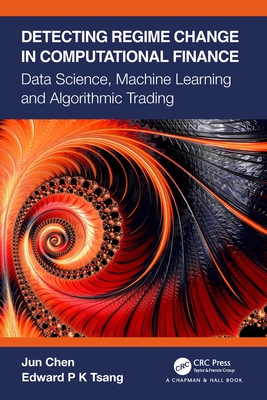Detecting Regime Change in Computational Finance: Data Science, Machine Learning and Algorithmic Trading

Detecting Regime Change in Computational Finance: Data Science, Machine Learning and Algorithmic Trading
Machine learning for regime change detection: historical regime changes in a market can be discovered by a Hidden Markov Model
Regime characterisation: normal and abnormal regimes in historical data can be characterised using indicators defined under Directional Change
Market Monitoring: by using historical characteristics of normal and abnormal regimes, one can monitor the market to detect whether the market regime has changed
Algorithmic trading: regime tracking information can help us to design trading algorithms
It will be of great interest to researchers in computational finance, machine learning and data science. About the Authors Jun Chen received his PhD in computational finance from the Centre for Computational Finance and Economic Agents, University of Essex in 2019. Edward P K Tsang is an Emeritus Professor at the University of Essex, where he co-founded the Centre for Computational Finance and Economic Agents in 2002.
PRP: 460.70 Lei
Acesta este Prețul Recomandat de Producător. Prețul de vânzare al produsului este afișat mai jos.
414.63Lei
414.63Lei
460.70 LeiLivrare in 2-4 saptamani
Descrierea produsului
Machine learning for regime change detection: historical regime changes in a market can be discovered by a Hidden Markov Model
Regime characterisation: normal and abnormal regimes in historical data can be characterised using indicators defined under Directional Change
Market Monitoring: by using historical characteristics of normal and abnormal regimes, one can monitor the market to detect whether the market regime has changed
Algorithmic trading: regime tracking information can help us to design trading algorithms
It will be of great interest to researchers in computational finance, machine learning and data science. About the Authors Jun Chen received his PhD in computational finance from the Centre for Computational Finance and Economic Agents, University of Essex in 2019. Edward P K Tsang is an Emeritus Professor at the University of Essex, where he co-founded the Centre for Computational Finance and Economic Agents in 2002.
Detaliile produsului










